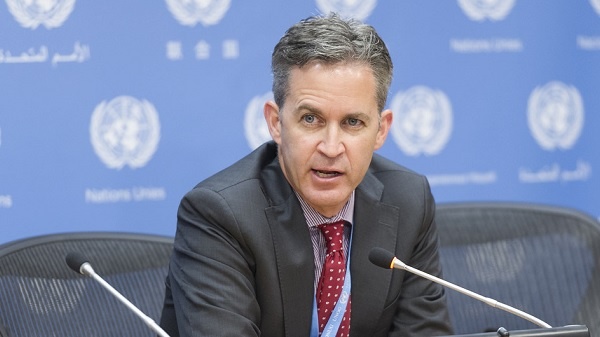
GENEVA (OHCHR) – The United Nations Special Rapporteur on freedom of opinion and expression, David Kaye, is making an official visit to Ethiopia from 2 to 9 December 2019.
“The new administration that took office last year undertook major political reforms that have been praised by many. On the other hand, some have voiced concerns that more needs to be done to fulfill human rights law and standards related to freedom of opinion and expression,” Kaye said.
“I will focus particularly on the measures taken by the Government to fulfill its human rights obligations relating to freedom of expression, including the protection of journalists, with a view to formulating recommendations.
“As the House of Peoples’ Representatives is discussing a law to combat hate speech, my visit is particularly timely. I look forward to fruitful discussions on the draft bill with representatives from all branches of the State.”
Kaye will be the first UN human rights special rapporteur to visit Ethiopia in a decade. He will meet Government officials, representatives from the judiciary, journalists and representatives from civil society in Addis Ababa and Bahir Dar.
The Special Rapporteur will present his preliminary findings to journalists during a press conference on the last day of the mission, on Monday 9 December, at 11:30 at the Small Briefing Room (SBR) located at United Nations Conference Center (UNCC). Access to the press conference will be limited to the media.
The Special Rapporteur will present a comprehensive report of his visit, which will include recommendations, to the UN Human Rights Council in June 2020. □
Mr David Kaye, Special Rapporteur on the promotion and protection of the right to freedom of opinion and expression. The Independent Experts are part of what is known as the Special Procedures of the Human Rights Council. Special Procedures, the largest body of independent experts in the UN Human Rights system, is the general name of the independent fact-finding and monitoring mechanisms of the Human Rights Council that address either specific country situations or thematic issues in all parts of the world. Special Procedures experts work on a voluntary basis; they are not UN staff and do not receive a salary for their work. They are independent from any government or organization and serve in their individual capacity.
Source: OHCHR
